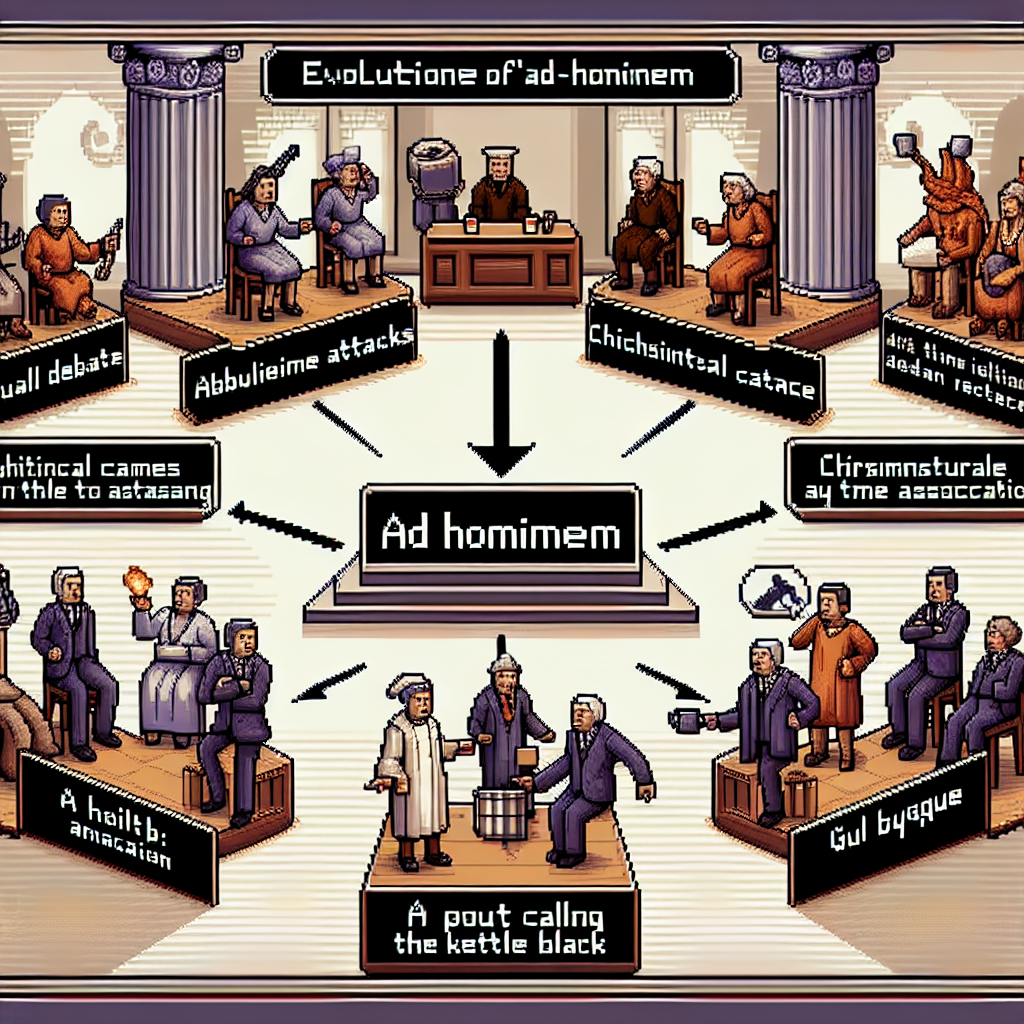Introduction to Non Sequitur
Definition of Non Sequitur
A Non Sequitur is a statement or conclusion that does not logically follow from the previous argument or statement. This term, rooted in logic, often leads to confusion because the expected logical flow is disrupted.
Importance of Logical Sequence in Communication
Maintaining a logical sequence in communication is crucial. It ensures that messages are clear and comprehensible. Additionally, coherent communication helps in building trust and understanding between people. Without this, discussions can become chaotic and unproductive.
Overview of Article Content
In this article, we will explore the origins and etymology of Non Sequitur, and examine its characteristics in various contexts such as language, logic, and popular culture. We will also discuss the consequences of using such fallacies, particularly in the realms of news media, while offering tips for avoiding these errors.
Origin and Etymology of Non Sequitur
Historical Background of the Term
The term Non Sequitur has been part of human discourse for centuries, particularly because it encapsulates ideas that do not logically follow from previous statements. Additionally, its journey through time reflects evolving modes of thought. Despite this evolution, its core meaning has remained surprisingly consistent. During the classical period, it began to gain recognition as thinkers underscored the importance of reason and coherence in communication.
Linguistic Origins
Examining the linguistic roots reveals an interesting path. Originally derived from Latin, the term Non Sequitur translates to “it does not follow”, making it a fitting descriptor for its usage. Moreover, as Latin influenced many modern languages, “Non Sequitur” seamlessly integrated into English vocabulary. Before long, it became an established component of discussions in logic and philosophy, given its relevance to argumentative fallacies.
Understanding Non Sequitur in Language
Characteristics of Non Sequitur Statements
In language, a Non Sequitur is an assertion that does not logically follow from the previous statement. Often, these statements appear disconnected because they interrupt the natural flow of dialogue. During conversations, sudden topic shifts are noticeable when the expected logical sequence is absent. Identifying these breaks is crucial. Additionally, understanding them lets speakers maintain coherence.
Common Examples in Everyday Conversation
While speaking, many encounter Non Sequitur instances. For example, during a discussion about the weather, someone might abruptly comment on their favorite movie, confusing listeners. Despite being common, such statements can bewilder audiences, leading to misunderstandings. Furthermore, recognizing Non Sequitur helps streamline conversations. As a result, identifying these disconnections enhances clarity, ensuring effective communication. Promoting awareness, therefore, is vital for improving dialogue.
Non Sequitur in Logic and Philosophy
Role in Logical Fallacies
The term Non Sequitur often plays a significant role in logical fallacies. It refers to conclusions that do not logically follow from their premises. Before presenting an argument, it is crucial to ensure coherence. Despite this, non sequiturs frequently appear in debates, clouding the real issues.
Impact on Philosophical Arguments
Non Sequitur reasoning can severely impact philosophical arguments. During discussions, philosophers must carefully evaluate logical connections to avoid fallacies. A non sequitur can derail a constructive debate, creating confusion. Additionally, recognizing these errors can contribute to deeper insights. To strengthen arguments, philosophers should critically assess their reasoning. Logical sequences promote clarity. This minimizes misunderstandings, fostering better communication.
Non Sequitur in Popular Culture
Examples in Movies and Television
Non Sequitur is often employed in movies and television to create unexpected twists and humor. Because these instances can catch audiences off guard, they are frequently used in scenes that aim to surprise or amuse. Additionally, characters might abruptly shift topics or make unrelated observations, adding layers of comedy and intrigue to storytelling.
Usage in Comedy and Entertainment
During comedic skits and routines, Non Sequitur statements are prized for their ability to generate laughter. Despite the apparent absence of logical connections, the humor arises from the absurdity itself, showcasing the clever use of language. Producers and writers often leverage this technique to break conventional narrative forms, crafting scenes that captivate the audience through unpredictability. While traditional storylines follow logical sequences for coherence, entertainment often bends these rules to engage viewers, thus demonstrating the creative potential of Non Sequitur in popular culture.
Non Sequitur in News Media
Impact on News Reporting and Analysis
The presence of Non Sequitur reasoning in news reporting and analysis can significantly distort the public’s understanding of events. Despite the potential for clarity in journalism, logical disconnections often lead to confusion. During a news broadcast, for instance, a sudden shift from a serious political analysis to unrelated entertainment news can disrupt the audience’s train of thought. This disjointed approach might make it challenging for viewers to comprehend the significance of the initial report, ultimately affecting their perception of reality. Additionally, when journalists fail to construct coherent arguments, readers may struggle to follow the narrative, resulting in misinterpretation. To combat this issue, it is essential for news media to prioritize logical coherence. By ensuring that all segments of a news report logically connect, journalists can deliver more accurate and understandable content, helping audiences form well-informed opinions.”
Non Sequitur: Consequences of Non Sequitur Reasoning
Miscommunication and Misinterpretation in News
In today’s fast-paced news environment, the use of Non Sequitur statements can significantly impact how information is understood by the public. For instance, during a televised news segment, a reporter might jump from discussing economic policies to unrelated crime statistics, causing viewers to mistakenly connect the two topics. This can happen despite the absence of any genuine correlation.
Influence on Public Perception and Decision-Making
The ramifications of such miscommunication and misinterpretation are profound. Viewers may develop skewed perceptions, believing economic downturns lead directly to higher crime rates, demonstrating the detrimental effects of Non Sequitur reasoning. As a solution, news organizations should provide clear context and ensure logical transitions between topics, encouraging viewers to rely on facts rather than assumptions. Additionally, providing training for journalists to identify and avoid logical fallacies will help in presenting more coherent stories.


